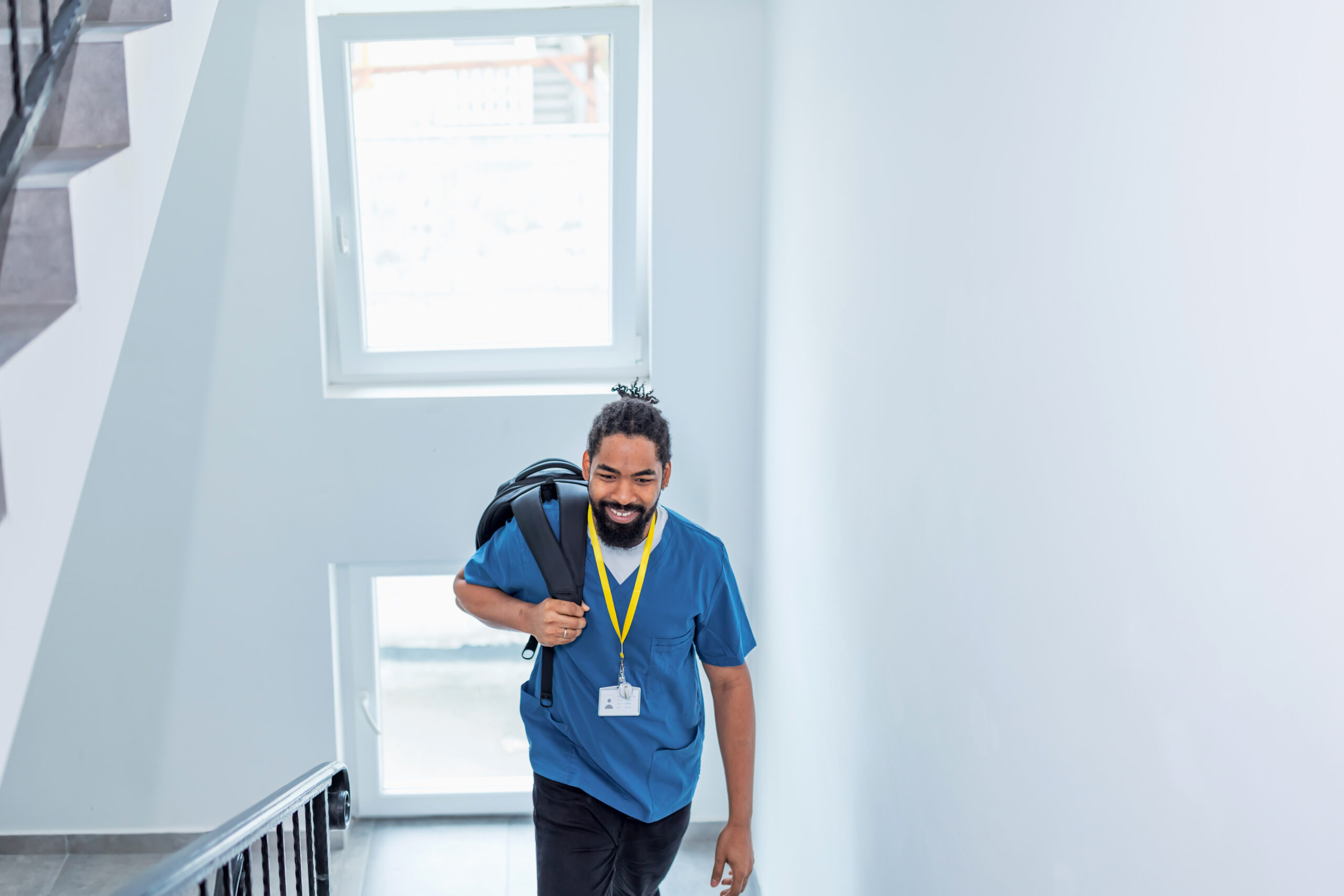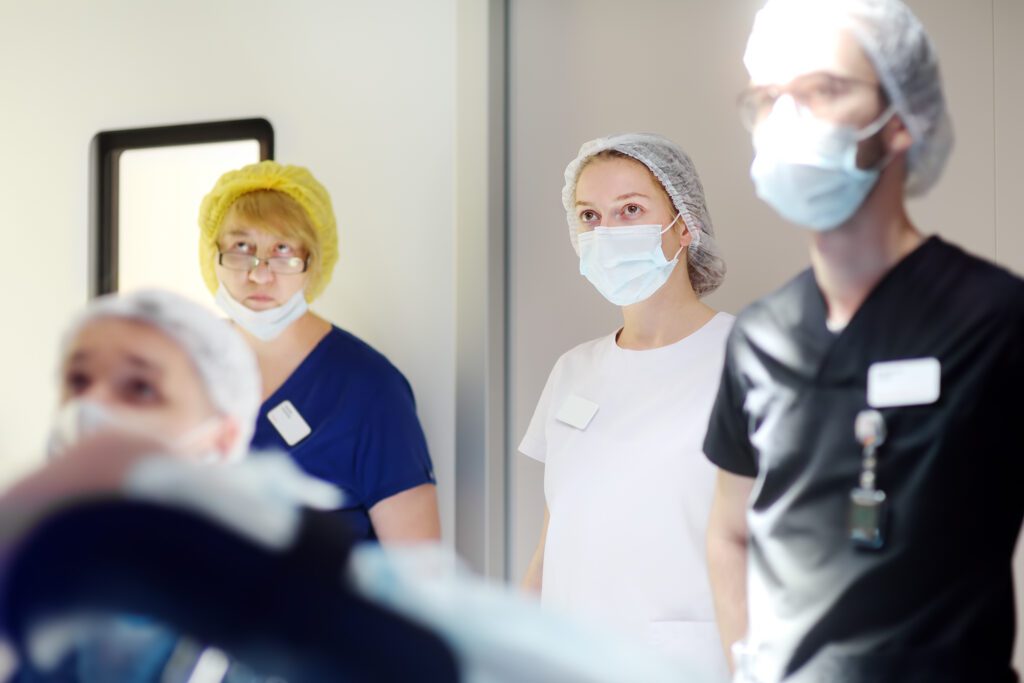How to Build Resilience in Medical School
- by
- Jan 04, 2024
- Reviewed by: Amy Rontal, MD

As I am about to embark on the final semester of medical school in the midst of residency interviews, I’ve had a lot of time to reflect on my medical school journey. In many ways, I had no idea what I was getting myself into. Maybe that was a good thing!
Nonetheless, it’s been an incredible past few years of personal and professional growth. As I prepare for graduation, I’d like to share with you something I’ve learned along the way that can hopefully be useful to you in your own journey.
I used to believe that passion was the single greatest trait a person needed to achieve their goals. As I’ve grown with experience, I now find resilience—our response to difficult circumstances—to have had a more impactful role in my journey. While passion can ignite the flame, resilience is the fuel that sustains it through even the windiest conditions.
In this post, I hope to give you some tools for practicing resilience, as well as some strategies for addressing the challenges you may face during medical school.
 If you’re just starting your USMLE exam prep, read this FREE Hero’s Guide to Defeating the USMLE, a 38-page master class from the experts that will save you time and ensure your success when you reach the final boss and face your exam. If you’re further along in your prep, it’s even easier to jump to helpful tips in the guide for your specific stage in the journey!
If you’re just starting your USMLE exam prep, read this FREE Hero’s Guide to Defeating the USMLE, a 38-page master class from the experts that will save you time and ensure your success when you reach the final boss and face your exam. If you’re further along in your prep, it’s even easier to jump to helpful tips in the guide for your specific stage in the journey!
A Helpful Framework for Thinking About Resilience
I’m very grateful that during the preclinical phase, my medical school had a longitudinal class called Professionalism and the Practice of Medicine (PPM). Through this course, I met one of my greatest mentors and someone who embodies every sense of the word healer, Dr. Mark Katz.
Over the years, he’s imparted sage advice that I’ll keep with me throughout my years of practice. To illustrate a useful way of thinking about how to stay resilient during medical school, I’d like to share one of his tidbits of wisdom with you: his idea of the mental “gas tank.”
“Being resilient in med school requires having fuel in the tank.”
As you know, our response to adversity is severely limited if we’re not feeling like ourselves. As a way of explaining this, Dr. Katz shared the concept of checking in on your own metaphorical gas tank to see if you’re running low, in the middle, or full.
If you’re somewhere in the middle or higher in terms of your fuel level, maintain your routine, but be cognizant of any upcoming challenging days or weeks.
If you’re about to enter a grueling time period, it is important to begin with a full tank. Even something as simple as taking a walk outside or catching up with a friend can help fill your levels a bit. When running low, take a step back to reflect and focus on replenishing your gas tank.
Medical school is all the more challenging when you’re not feeling your best. So fill yourself up with the activities that make you, you!
“Make sure there isn’t a hole in your tank.”
While this concept of the gas tank is simple, it can be easy to ignore your needs when the days become long and arduous. This creates a vicious cycle, which continues to deplete your gas tank. Try to be conscious of your energy reserves so you can make real-time adjustments.
What I didn’t realize until later in medical school was that I’d unwittingly placed a hole in my own tank! One of the traps I fell into was spending my entire day studying. But this is good, right? Wrong!
I noticed that whether I had two or ten studying tasks to do in a day, it took me the same amount of time. Having fewer tasks but the same allotted time meant I worked less efficiently. Whereas when I mixed studying with hobbies, it really maximized my productivity. The point is, don’t feel guilty for not studying all the time! You’ll be more productive if you don’t.
How to Build Resilience During Medical School
Resilience is an abstract, soft skill that can be challenging to develop. It may also fluctuate on a day-to-day basis. Taking time to critically think about your resilience can bear great fruit in the future, as a career in medicine is guaranteed to involve many challenges.
Here’s a couple of tips for how to become more resilient during your medical training:
1. Set aside time to do things you enjoy.
One way I worked on my own resilience was to create small breaks during the day that were reserved for activities that brought me joy. This reenergized me and prepared me to tackle new challenges.
I started doing this as a result of a series of wellness challenges held at my medical school. They ran month-long programs with themes like meditation and yoga. If we kept track of our daily progress in an app, we could get fun prizes. During this time, I formed healthy habits like taking a daily walk during Step studying and stretching before going to sleep. I even got a massage gun to help me destress.
If you have some time set aside during the day to do whatever makes you happy, it can really boost your resilience.
2. A social network can increase resilience.
Another way to reinforce your resilience comes from having a strong support system. This could really be anyone: family, friends, mentors, or counselors to name a few.
I’ll admit my family received quite a few phone calls when I was studying for Step 1. It really takes a village to make a doctor and it can be easy to forget about all the people rooting for you. Know you’re not alone during your medical school journey and lean on your support system during especially difficult times.
Obstacles to Resilience in Medical School
Many of the challenges faced during medical school can be grouped into a few general buckets.
Here are a few I have chosen to discuss today:
1. Content Learning Challenges
Medical school is tough, and the sheer volume of content can be demoralizing. I found it comparable to drinking from a firehose with a straw. My main piece of advice is to be willing to adjust your studying techniques. If something isn’t working, be flexible and swap out one resource for another.
The preclinical phase is a unique time to figure out your personalized learning strategies. Some of you may be fresh out of college and others may have taken time off for other interests. Regardless of your situation, there is an adjustment phase at the beginning of med school. Keep your spirits up.
For some tips on how to study during the clerkship phase, check out my previous blog on balancing clinical rotations with studying! You can also reach out to your school’s counselor for help with studying tactics.
2. Interpersonal Conflicts
Working in a hospital environment is a lot different than your typical office workplace. The stakes are a lot higher as lives are involved. As such, this can lead to higher tensions and potential interpersonal conflicts. Each situation requires a tailored approach, but I will share some general advice.
A good first step is to analyze the situation. This can let emotions settle down and point the way to a resolution.
Next, you may want to talk with the person. It’s possible there’s been a misunderstanding. For example, words said in a stressful moment may be perceived hurtfully and clearing the air can be a helpful solution.
Another thing to consider is bringing in a third-party mediator. A clerkship director or your academic advisors could be good starting points for this.
3. Research Progress
Another common problem faced by med students is difficulty making progress in research. It’s not uncommon to work on a project for months and not see the needle move very far. As experience has taught me, this is just part of the research process. Don’t be demotivated if you haven’t published in “Nature” and “JAMA” by your first semester of medical school (just joking of course).
Research is a circular process that requires frequent pivoting for success. Being proactive in your research tasks and having clear communication with your project team are important principles to practice. Also, it can be helpful to join a few projects at different stages in the pipeline if you have the bandwidth.
Further Reading
Medical school is an exciting time, but it can also be isolating and really test your resilience. I hope you found Dr. Katz’s gas tank analogy useful as it has done wonders for me. Checking in with yourself and making time for activities you value are vital for your wellbeing. This will help you tackle the challenges you’ll face in medical school head-on. If you’d like me to address more topics about the medical school journey, write to me and I’ll talk about it in my next post.
Looking for more (free!) tips to help you through medical school? Check out these other posts from Blueprint tutors on the Med School blog!
About the Author









